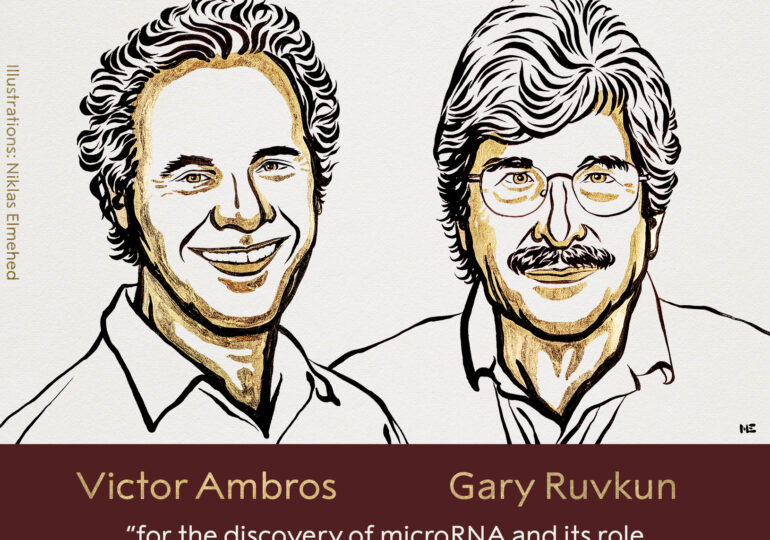The Nobel Prize in Medicine in 2024 was awarded on Monday to American researchers Victor Ambros and Gary Ruvkun for „the discovery of microRNA and its role in the post-transcriptional regulation of genes.”
Thomas Perlmann, the Secretary-General of the Nobel Committee at the Karolinska Institutet, made the announcement.
This year's Nobel Prize honors two scientists for the discovery of a fundamental principle that governs how gene activity is regulated.
The winners will share a prize of 11 million Swedish kronor (approximately 810,000 pounds).
The information stored in our chromosomes can be likened to an instruction manual for all the cells in our body. Each cell contains the same chromosomes, so each cell contains exactly the same set of genes and exactly the same set of instructions.
However, different types of cells, such as muscle and nerve cells, have very distinct characteristics. How do these differences arise? The answer lies in gene regulation, which allows each cell to select only the relevant instructions.
This ensures that only the correct set of genes is active in each type of cell.
Victor Ambros and Gary Ruvkun were interested in how different types of cells develop. They discovered microRNAs, a new class of small RNA molecules that play a crucial role in gene regulation.
According to the Nobel Committee, "their revolutionary discovery revealed a completely new principle of gene regulation, which has proven to be essential for multicellular organisms, including humans."
It is now known that the human genome encodes over a thousand microRNAs. Their surprising discovery revealed a completely new dimension of gene regulation. MicroRNAs are proving to be extremely important for how organisms develop and function.
Ambros, a professor of natural sciences at the University of Massachusetts Medical School, conducted the research that earned him the award at Harvard University. Ruvkun conducted his research at Massachusetts General Hospital and is a professor of genetics at Harvard Medical School.
At the beginning of their work, the two studied the genetic composition of a 1-millimeter-long roundworm, C. elegans. Despite its small size, this worm possesses many types of specialized cells, such as nerve and muscle cells, found in larger and more complex animals, making it a useful model for investigating how tissues develop and mature in multicellular organisms.
The Nobel laureates in Medicine in 2023 were Katalin Karikó and Drew Weissman for their discoveries regarding nucleoside base modifications that enabled the development of effective mRNA vaccines against Covid-19.
The Nobel Prize season will continue on Tuesday for Physics, and on Wednesday for Chemistry. The Nobel Prize in Literature will be announced on Thursday, and the Nobel Peace Prize on Friday. On Monday, October 14, the winners for Economics will be announced.

